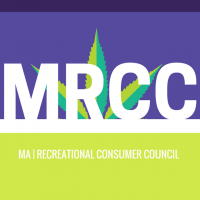The Massachusetts Recreational Consumer Council (MRCC) is an interesting nonprofit that recently launched an educational campaign, called Consume Responsibly Massachusetts. For many cannabis advocates who watched their states legalize the drug, consumer education is a very important part of moving forward. As states across the East Coast implement regulatory frameworks for the cannabis industry, there is a sense of urgency to make sure the rules are right the first time, and that cannabis businesses become responsible stewards of their new market.
 In the wake of pesticide recalls in the west and related public health concerns, the issues surrounding consumer safety and how states protect that are now front and center. “The purpose of Consume Responsibly Massachusetts is to keep adult-consumers informed of their rights in the state,” says Jefferson. “It’s also an ongoing effort to bring consumers into the world of cannabis politics and science.”
In the wake of pesticide recalls in the west and related public health concerns, the issues surrounding consumer safety and how states protect that are now front and center. “The purpose of Consume Responsibly Massachusetts is to keep adult-consumers informed of their rights in the state,” says Jefferson. “It’s also an ongoing effort to bring consumers into the world of cannabis politics and science.”
The MRCC’s mission is to help protect the safety of recreational cannabis consumers by bridging the information gap between businesses, legislators and communities. “We work at the state and local level advocating for sensible recreational marijuana policy and regulations,” reads a press release. According to Kamani Jefferson, president of the MRCC, bridging that gap requires a lot of community engagement. “I was a field organizer on the Campaign to Tax and Regulate Marijuana here in Massachusetts so this is extremely important to me,” says Jefferson. “MRCC participated in this year’s Cambridge 5K Freedom Run.” He says getting out in the community like this is one of many ways to help provide educational opportunities, help promote local cannabis businesses and get rid of the “lazy stoner stigma.”

For the MRCC, the issue of craft cannabis is a significant part of the organization’s philosophy, in addition to product safety and others. “Craft Cannabis will benefit the consumer in an entirely new way,” says Jefferson. “Members of the community will have a chance to provide products and directly affect the economy.” Because local owners tend to be more involved in their towns, Jefferson says residents will get to make more of an impact than nonlocal owners. And he’s right- small, local businesses contribute substantially more to local economies and communities than large companies. Between 1993 and 2013, small businesses created roughly 63% of all new jobs in the United States. With the new cannabis market comes a promising opportunity for local economies.
“The Massachusetts cannabis industry is developing and growing fast,” says Jefferson. “Aside from the medical marijuana production sites, the new recreational marijuana law grants production participation in the regulated recreational marijuana industry to farmers, in the form of craft marijuana cultivator cooperative systems.” While he thinks this is a good opportunity for small businesses and communities alike to gain a foothold in the market, Jefferson is hesitant to endorse Massachusetts’ regulatory policies. “A lack of regulatory oversight from the CCC [Cannabis Control Commission] places the cannabis industry in a vulnerable position,” says Jefferson. “If we want clear, consistent standards for clean and safe products prioritized, then we need consistent testing data.” Jefferson is arguing for more regulatory oversight for safety issues, such as contaminant testing. This is one of a handful of issues they are pressing for sensible cannabis policy in Massachusetts.
Here are some of the issues they support:
- Local Cannabis: Equitable licensing for small and medium sized local businesses from members of the community.
- Quality Control: Access to a variety of clean and safe cannabis products in retail dispensaries, tested for harmful contaminants, mold, pesticides and fungicides.
- Responsible + Safe Consumption: Access to educational materials about proper dosage, methods of ingestion, quality analysis, understanding product labels and general cannabis information.
- High Potency Flowers, Edibles, & Concentrates: Access, non-restriction to high potency marijuana products of all forms.
- Home Grow: Ability to grow at least 6 plants per person, 12 per household as stated in Question 4.
- Social Use: The ability to consume in designated establishments outside of the household.
- Expungement: Sentence commutation and record expungement for convictions involving non-violent marijuana charges that are now legal.
- Research: University supported biological, behavioral and cognitive marijuana research to further our understanding and capabilities of the cannabis plant.






